Where did we go? Charting the path of an Informatics Faculty.
Pioneers, plights, and pleasing: Dean Gerti Kappel and former Dean Hannes Werthner give personal insights into our Faculty’s development, milestones, and challenges.
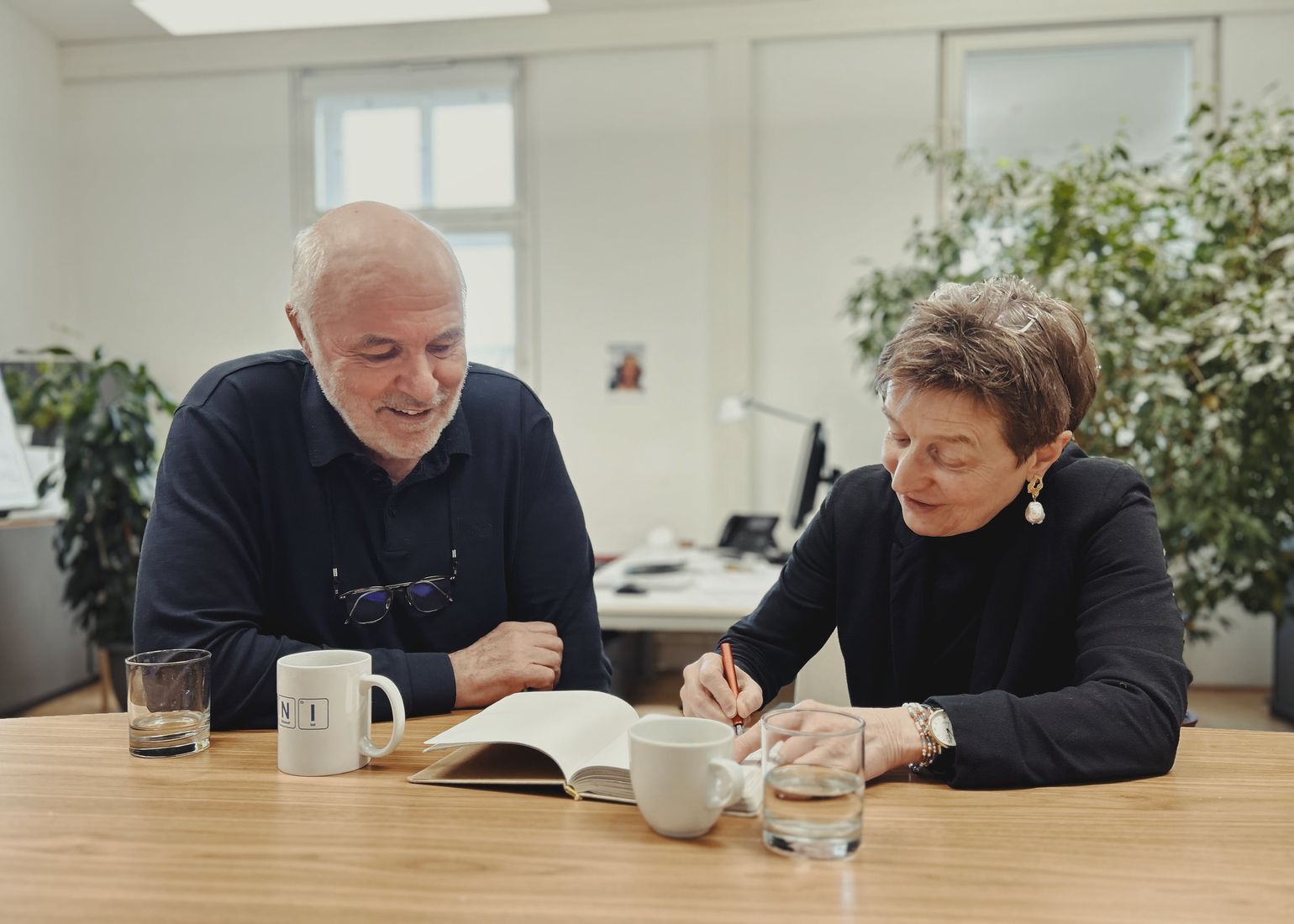
Picture: Theresa Aichinger-Fankhauser / TU Wien Informatics
What led you to TU Wien Informatics?
Werthner: I was appointed Professor for E-Commerce at TU Wien in 2006 and was previously at the Politecnico di Milano, the University of Innsbruck, and the WU Wien. Coming from mathematics, statistics, and simulation, I ventured into web technologies through tourism. I founded the E-Commerce Competence Center (EC3) in 2000, together with universities and Austrian companies. Yet, originally, Gerti and I both came from the University of Vienna – but from competing departments (laughs). And we have another thing in common: we applied for the same position at the University of Vienna when starting our career in academia, which Gerti ultimately got.
Kappel: Yes, in the 80s, there was a fierce battle for these jobs. Informatics education and research were extremely underfunded; we didn’t have enough computers and certainly not enough positions to really make a difference. This was all changed by protesting students and faculty – at TU Wien, Helmut Schauer was at the forefront; at the University of Vienna, it was A Min Tjoa. I became a member of A Min Tjoa’s group, who is an outstanding computer scientist and forward thinker. Together with Hannes, we organized the first seminar on informatics and society, and informatics and women back then, which A Min Tjoa supported immensely. These topics were and still are at the center of both our Dean’s activities.
I joined TU Wien in 2001 as a Professor of Business Informatics, with a very clear focus on developing this passed-over field. Student numbers were already quite high at the time, but the research groups were tiny. In 2004, when TU Wien Informatics was finally established as a standalone Faculty, I became the first Dean of Academic Affairs for Business Informatics.
Werthner: I was also Dean of Academic Affairs, first of Business Informatics and then for all study programs. Taking on this responsibility is a must if you want to help create or change the status quo. But of course, the next step to lead and shape the Faculty was becoming Dean in 2016. Gerti was part of this Dean’s Team and was elected Dean for the following term in 2020. As you can see, we have a lot more than 20 years of collaboration to show for.
Which milestones of the last 20 years have been the most significant for you?
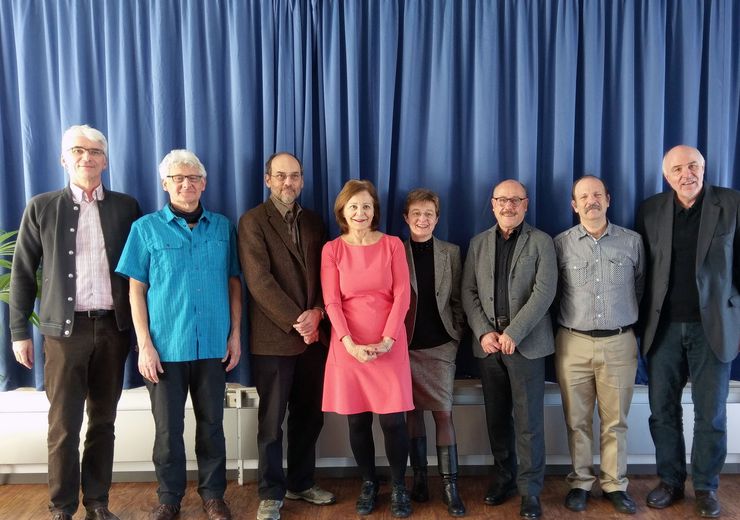
Picture: TU Wien Informatics
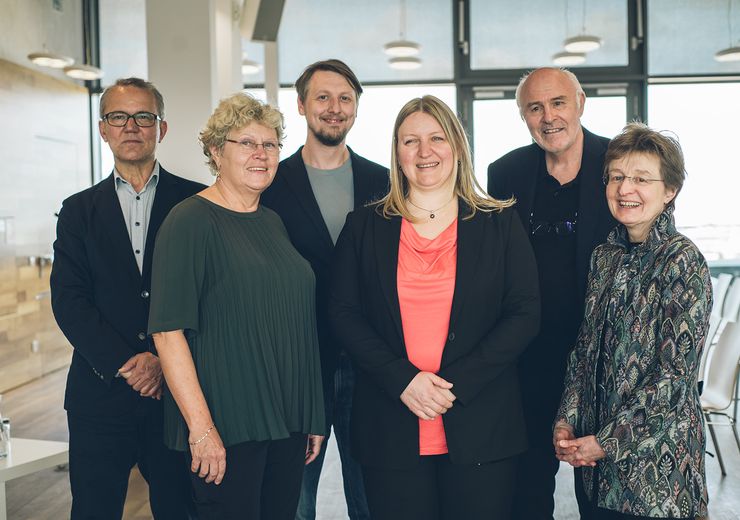
Picture: TU Wien Informatics
Our initiatives make us what we are today.
Werthner: The understanding that informatics is more than just informatics. In the 80s and 90s, we already knew that computer science was more than just a science in an ivory tower. However, its current all-encompassing significance for the world as a whole was not tangible at the time. This understanding has not only manifested itself, but is now an actual scientific and political manifesto within our pioneering Digital Humanism initiative. Our societal and political engagement matured at the Faculty, but has come about through an international alliance that we have played a key role in promoting. Our commitment to internationalization at the institutional level has facilitated our standing as a Faculty.
Former Dean Gerald Steinhardt was at the forefront of the Faculty’s establishment. He lead the then ‘Fachgruppe Informatik’ and shaped important steps of the young Faculty. Furthermore, the establishment of an International Advisory Board, our TU Wien Informatics Doctoral School, international degree programs, and attracting renowned international researchers were decisive for our journey. I’m proud that TU Wien Informatics is now internationally recognized for its academic excellence, as well as our societal commitment to shaping a better digital world.
Kappel: Our initiatives make us what we are today. From Welcome.TU.Code and eduLAB to the Vienna Gödel Lectures, motivated and committed researchers, lecturers, and students have proven how versatile and crucial computer science is, and push forward until this day.
Just like our commitment to women in IT, which began with the Wissenschafterinnenkolleg Internettechnologien (WIT). WIT started 21 years ago, and ended in 2008 – almost prehistoric from an IT perspective. But it has positioned the Faculty, whether people wanted it or not. We received 2.5M euros for projects to promote women, which we implemented in school workshops, information campaigns, networking, and lectures. At that time, colleagues reproached me because it was thought ‘a waste of money’. Well, we now have a different story to tell: our continued initiative for Women in Informatics has not only led to a more equal faculty but won us the Europe-wide Minerva Equality Award in 2022.
Smartphones, big data, the Internet of Things (IoT), and now Artificial Intelligence (AI) – a lot has changed in the last 20 years. How has the Faculty adapted?
Werthner: A university is essentially a vacuum cleaner for ideas. You have to be dogmatic in order to uphold the quality of your own research and teaching, but then also soak up the latest developments in the field. It’s quite a balancing act.
We need the other disciplines, and the other fields need computer science.
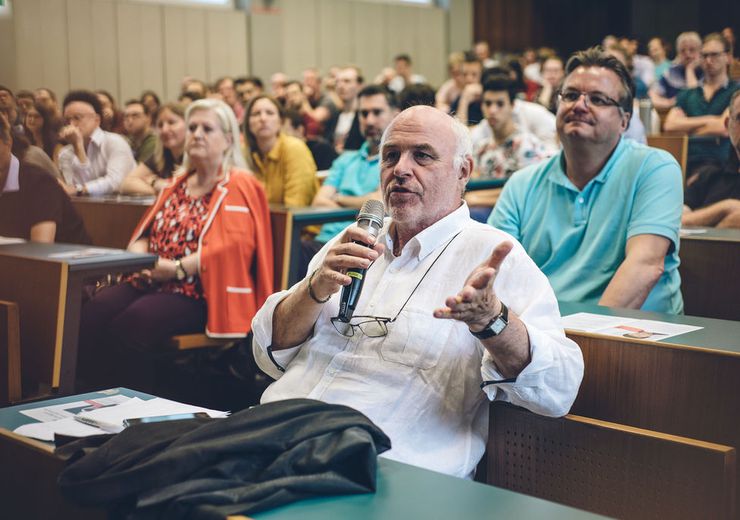
Picture: TU Wien Informatics
Take the paradigm shift in AI: for decades, the field was determined by logic and also had a large school in Vienna. Now, all of a sudden, statisticians are coming along who were not taken as seriously before. Adapting to this is a major challenge, and the Faculty is changing slowly but surely. Our advantage is that new fields are developing out of existing structures.
Today, we manage to attract expertise from other areas with interfaculty research centers. We need the other disciplines, and the other fields need computer science. However, the awareness of how relevant interdisciplinary collaboration truly is, was not always there. I had many fights during my dean’s term; a lot of our concepts, such as bridging professorships or a joint innovation center, were not accepted at the time. Fortunately, things are moving in the right direction – because leaving your comfort zone might feel hard at first, but the rewards are unmatched.
Kappel: We also made mistakes (laughs). For example, with the Bachelor’s program in Data Engineering. It was an applied statistics degree, comparable to data science today. Since the start, the number of beginners could be counted on two hands – nobody could really grasp the seemingly foreign topic. The program was discontinued in 2010. In 2011, the Harvard Business Review declared data scientist to be the ‘sexiest job in the 21st century’ – we simply didn’t realize. Later, we fought for two years to introduce our Master’s program in Data Science. Now, it is our fastest-growing degree program, and we have a whole research unit dedicated to the field. This experience taught us a valuable lesson about the importance of agility, which is not a given at universities. Still, we try to not just observe trends but to quickly incorporate them into our research and teaching. Take sustainability, for example, one of the most pressing topics of our time. The Sustainability in Computer Science Lecture Series is only the first step of a fundamental integration of ecological and social innovation into our research and teaching.
How have TU Wien Informatics’ researchers and alumni impacted the field?
Kappel: It’s funny and nothing short of revealing our personalities that we discussed our initiatives when asked about the Faculty’s milestones. But, of course, the technical aspects of informatics, our research and teaching, are our most crucial responsibilities. This Faculty has profoundly shaped diverse fields in computer science – from basic research and logic (e.g., with the VCLA), in computer and software engineering, as well as visual and human-centered computing. We are leading research on fast-evolving technologies and world events, like COVID-19 – where our researchers, led by Niki Popper and Allan Hanbury, provided real-time results on the spread and control of the pandemic. Of course, many start-ups and spin-offs have been established with and from our Faculty, and we are proud of a vast number of industry cooperations to put our latest research findings directly into real-world applications. One of the most notable alumni companies is TTTech, which deals with safety-critical communication in distributed systems. The Time-Triggered Protocol developed by company founder Hermann Kopetz in the 80s is now used in systems everywhere, such as airplanes or self-driving cars.
Werthner: I want to add Georg Gottlob, who is a pioneer in logic-based AI with structured data and shaped our Faculty to a great extent. And, of course, Werner Purgathofer, in visualization and imaging. In the last 30 years, they have built and positioned fields that are now pivotal to informatics. We also made crucial contributions to business informatics, namely in data interaction and software engineering. But there is so much more, the list of exceptional researchers goes on – please feel free to convince yourself (laughs). However, I want to unmistakably state that the first and foremost challenge is funding. It doesn’t matter how pioneering your ideas are, how eager your staff is, how world-changing your approach might be – if you don’t have the funds to actually execute your research and bring those ideas to fruition. Without adequate financial support, even the most innovative projects struggle to move beyond the conceptual stage.
Take the field of Human-Centered AI, now the newest boom: Researchers at our Faculty conceptualized a strategic approach integrating different disciplines and other academic institutions two years ago. But implementing the comprehensive projet was not possible, because of a lack of funding. What we needed was one million euros a year – peanuts in comparison to what Stanford or MIT can do. Standford then established the Center for Human-Centered AI (HAI), which is now a global leader in the field. In Austria, we really need to rethink scientists’ role in the economy, society, and for our democracy. Although we have the brains and the power, without a clear commitment, we’re at risk of falling behind.
Being Dean of the largest Informatics Faculty in Austria – what were your highs and lows?
Kappel: Starting my Dean’s term, I wanted to accomplish two things. First, to make the Dean’s role feasible and show that it can be done without having to work 24/7. Second, to positively shape TU Wien Informatics facing one of the largest numbers of retirements in decades, and building a new community.
Leading is essentially a people’s business.
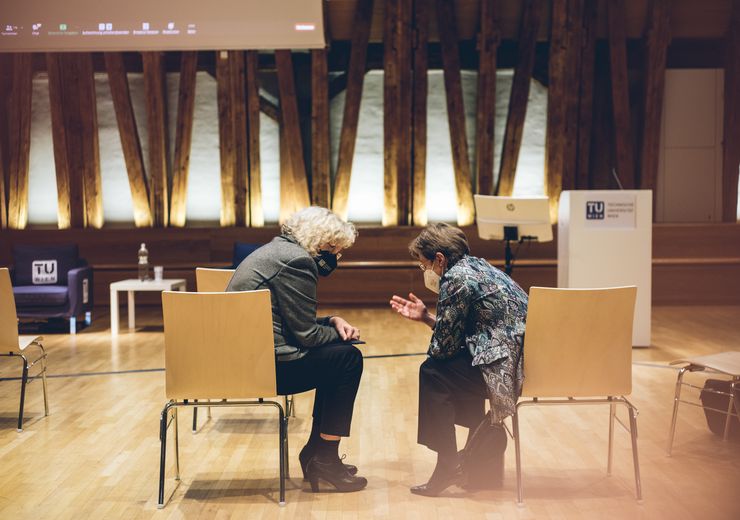
Picture: TU Wien Informatics
I guess I didn’t succeed with the first one. But the second is the most exciting and rewarding task for me right now. Leading negotiations, introducing new colleagues, and positioning them across the university is where I see the most added value in my work. The biggest challenge is actually just the same – the humans. Leading is essentially a people’s business. In the end, I am there for everyone, and everyone wants to be satisfied. To please people all the time, to put it mildly, is not easy – or rather impossible (laughs).
Werthner: I was in a similar position, but with a twist (laughs). I was primarily a ‘sponsor pleaser’, went to great lengths to acquire funding, and still do. For me, the greatest challenge during my Dean’s term was being a boss without being a boss. You have to lead and shape people while, let us be honest, having limited power over them. It is an important right of our researchers to work independently and create an environment where they can live up to their full potential. As Dean of an extensive faculty within a large and, therefore, administration-heavy university, this sets certain boundaries. However, these challenges have also been a source of growth, encouraging us to build a culture of negotiation and respect.
Looking ahead, what future challenges await?
Werthner: The Faculty needs to go even further beyond the perceived limits of computer science. There was a notorious article in the Communications of ACM stating that ‘informatics is becoming a social science’. A professorship in Digital Humanism is currently being discussed, which would combine expertise in the humanities and social sciences with technical know-how.
But it’s still not that easy to find someone who is universally educated, partly because these fields are very differently conceived and institutionalized. Fortunately, the Faculty already has researchers and working groups dealing with societal questions, also on a theoretical level. You should to implement them even more deeply in teaching; ethics should become part of the technical subjects as early as the first year of study.
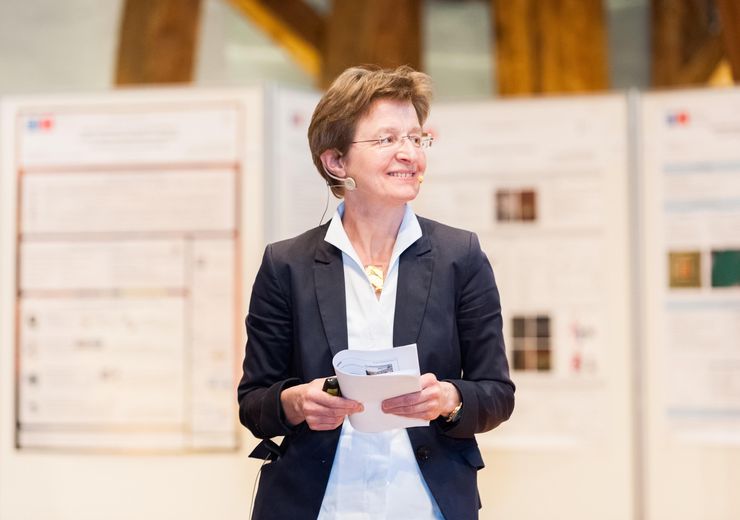
Picture: TU Wien Informatics
Kappel: We’re facing challenges we can’t possibly solve alone. Explainable AI, quantum computing, and post-quantum security – only to name a few – are upcoming fields where we also need physics, statistics, mathematics, electrical engineering and humanities. The challenge lies in balancing insights from other areas while not losing focus on developing your own field.
This is also true beyond academia. Although we need funding from various sources, universities have to remain the creators of knowledge, and not mere service providers. Innovation comes from the synthesis of diverse expertise and the fearless pursuit of ideas – we need to safeguard this role in the vanguard of discovery. Only then can we purposefully shape a new digital era.
